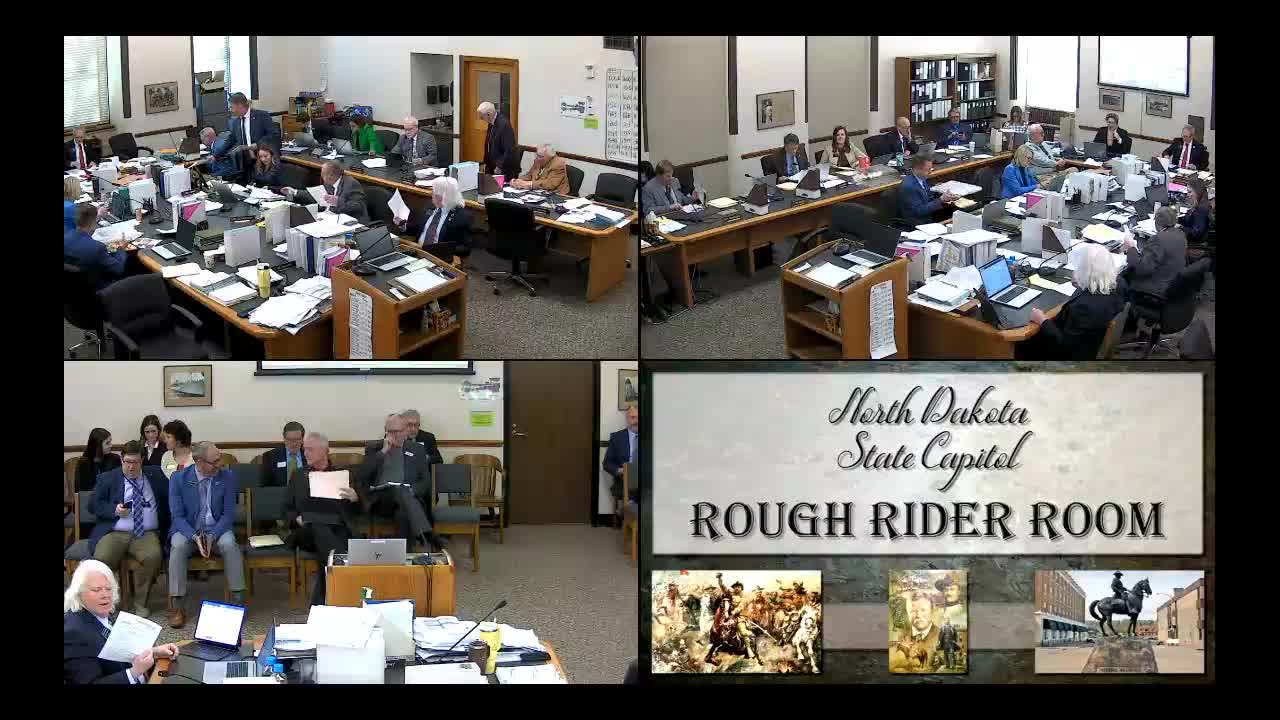Committee advances amendment to HB1168 to cut required levy by 10 mills across property classes
Get AI-powered insights, summaries, and transcripts
Subscribe
Summary
The House Finance and Tax Committee heard Representative Craig Hedlund summarize amendments to House Bill 1168 that would reduce the required mill levy from 60 to 50 and, after an amendment to name funding sources, the committee approved the amendment to the bill.
Representative Craig Hedlund, chairman of the House Finance and Tax Committee, told members on the record that House Bill 1168 had been amended to provide a 10-mill reduction “across all classes of property,” reducing the required levy from 60 mills to 50 mills.
The change is presented as broad; Hedlund said the 10-mill buydown “would equate to about $120,000,000” in fiscal cost. Representative Louser offered an amendment (labeled 7,001) that would identify funding sources for the buydown; Louser said he had spoken with Governor Armstrong and “he had his permission and his support to add the funding source that he had in another bill as the amendment to this bill.” Representative Louser said the funding-source language was included in the emailed amendment packet sent to committee members.
Committee members pressed for detail about how the bill treats school levies and other political subdivisions. Louser and Hedlund explained that the bill excludes schools from the 3% cap on annual growth imposed on other political subdivisions; school districts retain existing authorities including building funds and bonding authority. “The schools are excluded specifically because this is a 10 mil reduction of the 60 that are … that we require as a legislature,” Louser said. Hedlund summarized: “This would take the required mills that we levy from 60 down to 50 and all the other political subs are at 3 percent cap on the portion of their budgets that they collect in property tax.”
Committee members asked how the 3% cap would interact with new property growth, overrides and how out-of-state ownership would share in benefits. Hedlund said the cap carries forward for one year in the amendment and that new property is added to local tax bases and treated separately in the first year. On out-of-state ownership, Hedlund said there is “no benefit to an out of state property taxpayer. They will receive relief based on what they pay as a percentage. So everybody's treated the same whether you're an in-state property owner or out of state.” Representative Doctor later emphasized that the tax department does not reliably flag in-state versus out-of-state owners and that counties would need to gather that data.
Representative Louser moved the amendment; Representative Pyle seconded. After discussion, the committee took a roll call on the amendment; the chair declared the amendment passed and the bill as amended will be part of further committee consideration.
The chair said the committee will not take final action on the underlying bill at this meeting; members requested printed copies of HB1168 as amended for later discussion.
Ending: Committee members agreed to hold additional hearings on property-tax proposals and to circulate the amended text and fiscal details before taking final votes.
